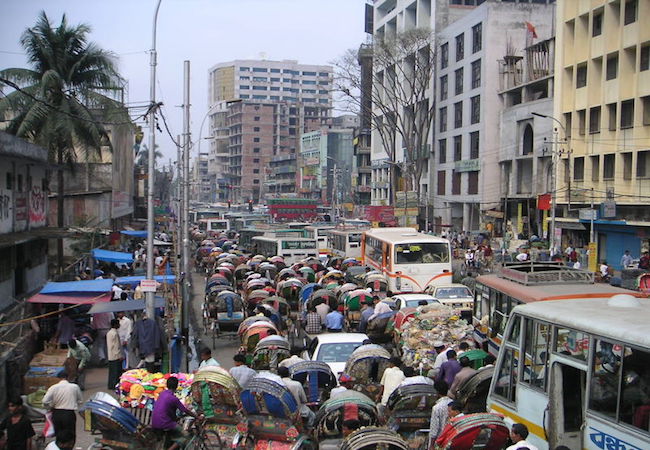
By Sajeeb Wazed
The 2014 national elections in Bangladesh were among the most violent in the nation’s history. The Bangladesh Nationalist Party (BNP) and its extremist ally, Jamaat-e-Islami, waged a campaign of political terror across the country. The perpetrators have been prosecuted for their crimes. In Bangladesh, the rule of law trumps politics, not the other way around.
This is true even for members of the Awami League, which is the governing party in Bangladesh. The country’s High Court recently upheld the death penalties of 15 members of the elite Rapid Action Battalion who were convicted of murdering seven people in 2014. One of those RAB members was Tarek Sayeed Mohammad, the son-in-law of Disaster Relief Minister Mofazzal Hossain Chowdhury Maya, an influential Awami League leader.
Indeed, politics protects no one in Bangladesh. Not long ago, police arrested and imprisoned Amanur Rahman Khan Rana, an Awami League member of Parliament for the murder of a fellow Awami League official, Faruk Ahmed. Rahman remains behind bars. His repeated bail applications have been rejected. Similarly, Abdur Rahman Bodi, an Awami League member of Parliament who provided false information to the Anti-Corruption Commission in 2014, was sentenced to three years in prison.
The opposition BNP chose to sit out the 2014 elections and to turn instead to nationwide strikes and violence. The justice system treated the perpetrators as it should: as violators of law.
For example, BNP leaders and their Jamaat collaborators set fire to thousands of buildings, cars and businesses. They ransacked and demolished power stations, killed 20 law enforcement officers and torched government buildings. They also targeted members of the Awami League – the ruling party at the time – and burned their homes. On election day, they firebombed polling booths.
The BNP’s rampage continued well into 2015. Armed with Molotov cocktails and gasoline bombs, BNP and Jamaat members sought to terrorize their political opponents into submission. The protests hobbled the nation’s transportation infrastructure and victimized some of the most productive members of society. In all, the BNP-backed attacks killed 231 people and injured 1,180 others. These were criminal actions, not politics as usual.
The government deployed troops to stop the violence and arrested ringleaders of the violence. Some escaped. During the ascension of a military-backed caretaker government a decade ago, BNP Senior Vice Chairman Tareque Rahman fled the country. Rather than face trial at home for allegedly orchestrating a grenade attack that killed 20 people, Rahman lives comfortably in London. He should be extradited.
But Rahman is the exception. Bangladesh’s criminal justice system strives to be both fair and transparent. Bangladesh’s International Crimes Tribunal – its vehicle for trying war criminals going back to the country’s 1971 war of liberation – has tried and convicted more than 20 individuals on charges of genocide and other crimes against humanity committed during war of independence from Pakistan.
No one is immune from prosecution. Consider the case of Salauddin Qader Chowdhury. The fact that he became a high-ranking BNP official did not give him cover for the atrocities he committed during the 1971 war. In 2013, the tribunal found him guilty of war crimes, including genocide. Two years later, he was executed.
The establishment of the tribunal in 2009, modeled on the Rome Statute — the gold standard for international criminal courts — heralded a high-profile return to the rule of law in Bangladesh.
Bangladesh has sought justice and accountability for both the war crimes of 1971 and the more recent acts of political terrorism. Contrary to the BNP’s claims of political vendettas and biased prosecutions, the courts have adhered to international standards and the trials have been even-handed and open to the public.
Through the handling of the BNP’s violent outbursts and the prosecution of war criminals in the International Crimes Tribunal, Bangladesh has demonstrated that its judiciary is transparent and fair. The prosecution of BNP officials for their role in the recent spate of violence demonstrates the nation’s commitment to the rule of law.
More to the point, members of the governing Awami League, including members of Parliament, aren’t immune from prosecution. Being a political friend or a political enemy of the government makes no difference. In Bangladesh, the law is the law.
Sajeeb Wazed is Bangladesh’s chief information technology adviser and the son of Prime Minister Sheikh Hasina.




